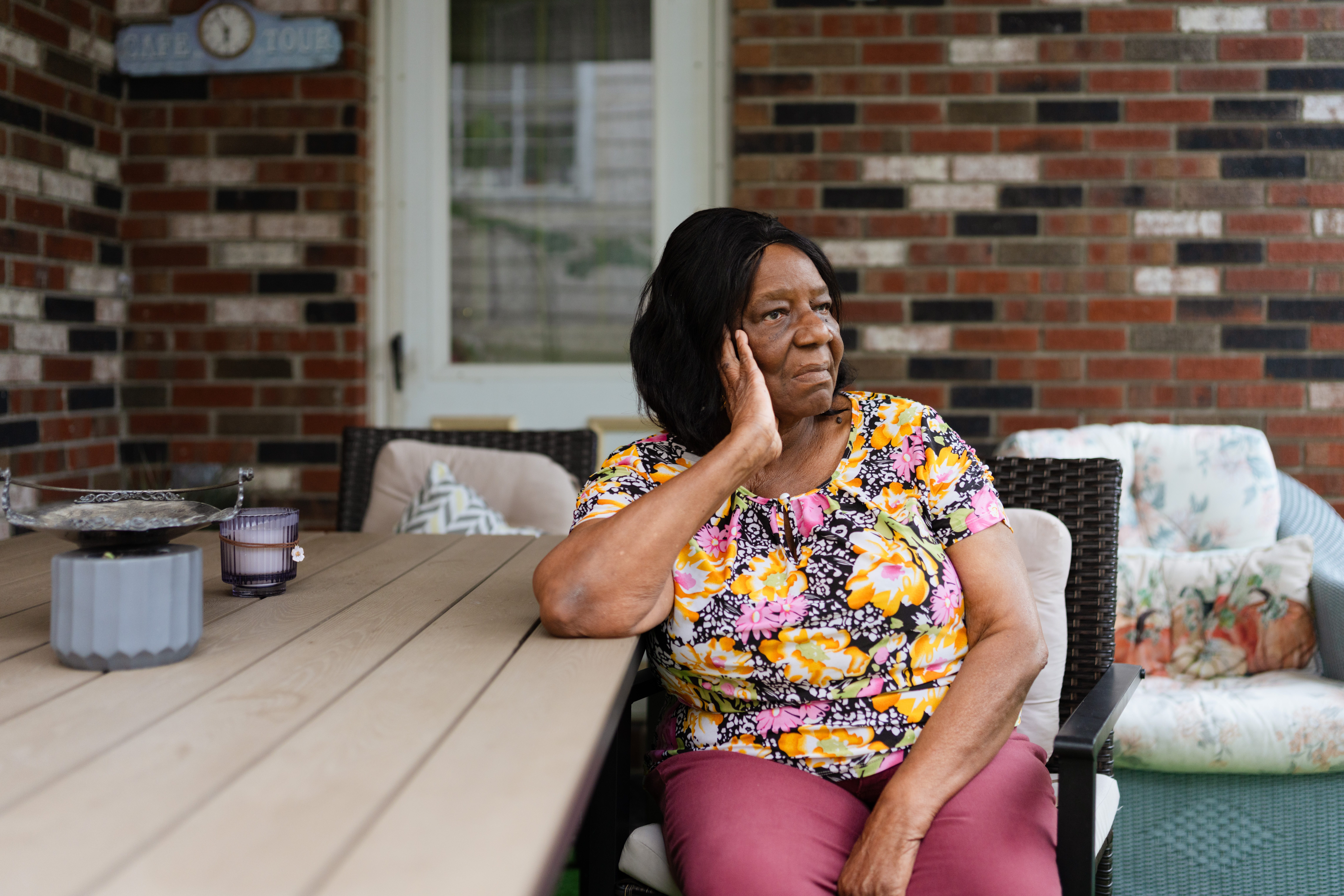
Corrie Aune for BI
Ina Harris, 82, believes that starting a business is the only way she can earn enough to pay her bills.
For years, Harris rotated through three-month stints as a direct care professional in the homes of clients who needed help recovering from surgery or managing chronic health conditions. The pay wasn’t stellar, but the work was consistent and gave her stability.
Then she started struggling to find jobs. She can’t drive, a requirement for many jobs in her field, and she suspects potential employers considered her too old.
“I’m a single person, and if you’re not working, you cannot give yourself necessities,” Harris said.
Hear about Harris’ business in her words:
So Harris started her own business in August 2024, offering compassion visits, wellness checks, and medication and grocery pickups. She hires a driver to travel between jobs near her home in Easton, Pennsylvania, and works about 20 to 30 hours a week for $20 an hour. Her mortgage and other expenses are about $2,000 monthly.
“You never know when you start a business, but it might be successful,” Harris said.
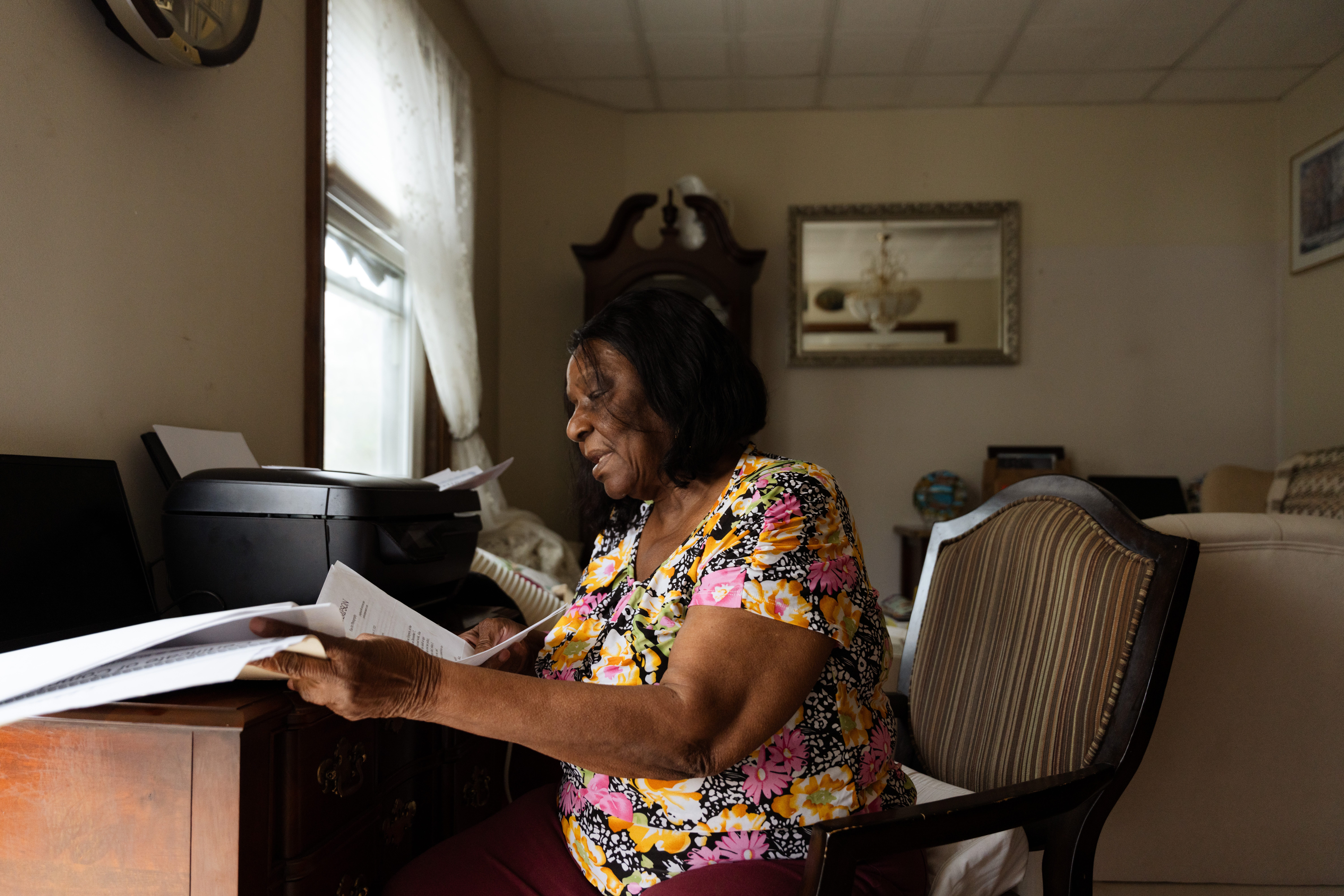
Corrie Aune for BI
Thousands of older Americans believe paving their own path — opening a business, working as a freelancer, or taking on independent contracting projects — is their best option for financial success and a sense of purpose. Among the nearly 550,000 Americans working at 80 and older, about 27% are self-employed, in line with the overall percentage of the US population, according to a Business Insider analysis of Census Bureau data.
A dozen of the roughly 160 Americans in their 80s who’ve spoken with Business Insider about their jobs this year said they recently became self-employed after being laid off, experiencing financial instability, or facing a health condition that made full-time work too difficult. They said they have tried to apply for jobs, only to be rejected time and time again amid a tight labor market. A few others had been self-employed for decades.
Business Insider’s “80 over 80” series draws on interviews with the growing group of Americans working past their 80th birthdays. They discussed their careers, retirement planning, living expenses, healthcare, and life lessons. If you are 80 and older and still work, fill out this form to contribute to the series and read more here:
- From 6 figures to minimum wage: America’s oldest workers are taking pay cuts
- These 80-somethings are using AI more than you
- Older Americans in their 80s are applying for jobs — and hitting a wall
- They’re in their 80s, still working, and living paycheck to paycheck
- What work looks like in your 80s for half a million Americans
- 81 and working to survive
Cal Halvorsen, an associate professor of social work at Washington University in St. Louis, said that the self-employment rate increases slightly after the age of 65. This is when people become eligible for Medicare and Social Security and no longer need an employer to provide healthcare and retirement plans. Many become self-employed because they have to leave their jobs to care for a parent, spouse, or grandchildren. But being independent comes at a cost.
“When you’re self-employed, you are far less likely to save money for retirement,” Halvorsen said. “Most self-employed people end up not taking part in retirement plans because they’d rather use the business to cover their immediate needs personally, or to use the proceeds to invest back into their businesses.”
An 81-year-old woman in Connecticut is starting a greeting card business in hopes of retiring from Home Depot as her heart failure worsens. An 82-year-old man in Arizona founded a tech startup with $15,000 in debt. An 81-year-old man in Pennsylvania secured patents for his refrigeration system to afford housing.
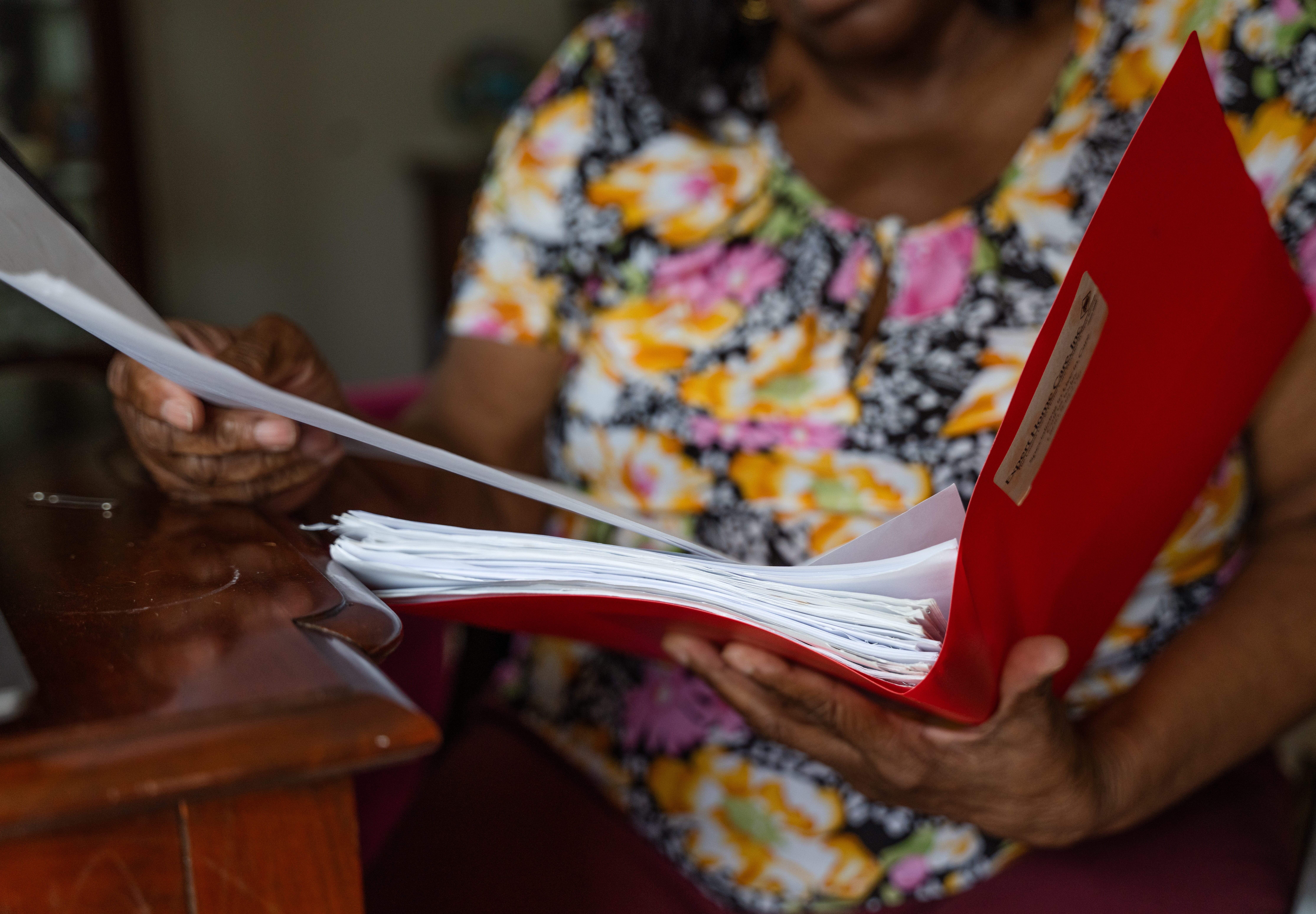
Corrie Aune fot BI
Many of these workers said they suspect that their age has hindered their ability to find stable employment. Some felt they were forced out of companies and replaced with younger workers.
Sheila Callaham, cofounder of the Age Equity Alliance, said she predicts that many people founding businesses in their 50s and beyond do so because there are no other options — a trend she also expects to happen for younger people who can’t find work after college.
“Companies have to understand the impact of shifting demographics on their talent sustainability, and they have to be committed to creating a culture that anyone of any age would want to work for and want to stay in,” Callaham said.
Big dreams, no financial security
For some workers in their 80s and 90s, starting a business is worth the financial risk. Some told Business Insider that they may only have a few years left, so they might as well make them count.
Michael Clinton, who founded ROAR Forward, a business intelligence platform for people 50 and over, said he’s helping older Americans pivot into writing, creative, and entrepreneurial roles late in life. He’s deemed these people “Re-Imagineers,” a few of whom are in their 80s.
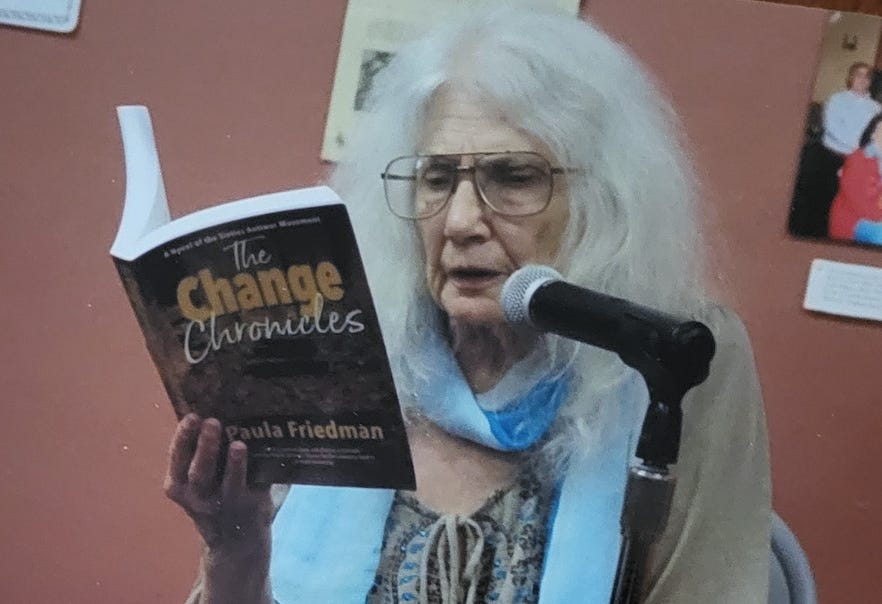
Paula Friedman
“If you don’t want to be a Starbucks barista, it’s very hard for people over 65 to find work,” Clinton said. “The people we come across tend to identify what their skill sets are and what their niche might be. It’s up and down the socioeconomic spectrum.”
Paula Friedman, 86, is working to unlock that niche by finding new editing and PR opportunities, building a brand on Fiverr, and adopting AI.
Friedman, who lives in Oregon, said fewer companies want editors compared to a few years ago, and the rates are often unsustainable. She said she’s ambitious, partly out of necessity, and suspects she wouldn’t be able to find a 9-to-5 job with enough flexibility.
“Between Social Security and what I make from editing, which is less and less, I manage to make a living,” Friedman said. “Once you have gray hair, nobody looks at you.”
Starting over after decades of ventures
Phyllis Miller, 82, used to consider herself a serial entrepreneur, but she can’t afford to define herself like that anymore.
Miller, who lives in a mobile home park in Riverside County, California, has held various jobs, including restaurant manager, real estate contractor, and owner of a flower store. She also started a furniture business and a downsizing business.
Hear from Miller about her outlook:
None of it culminated in substantial savings, so she delivered food for Instacart before deciding the cost of gas and maintenance wasn’t worth it. With minimal savings, Miller has relied on her $1,426 in monthly Social Security.
Decades ago, she would have risked opening another business; the thought of doing so now is unfathomable. She isn’t well-connected and thinks it would be nearly impossible to secure funding. Miller hasn’t been able to receive much assistance from employment organizations, and applications she submitted on Indeed haven’t yielded any results.
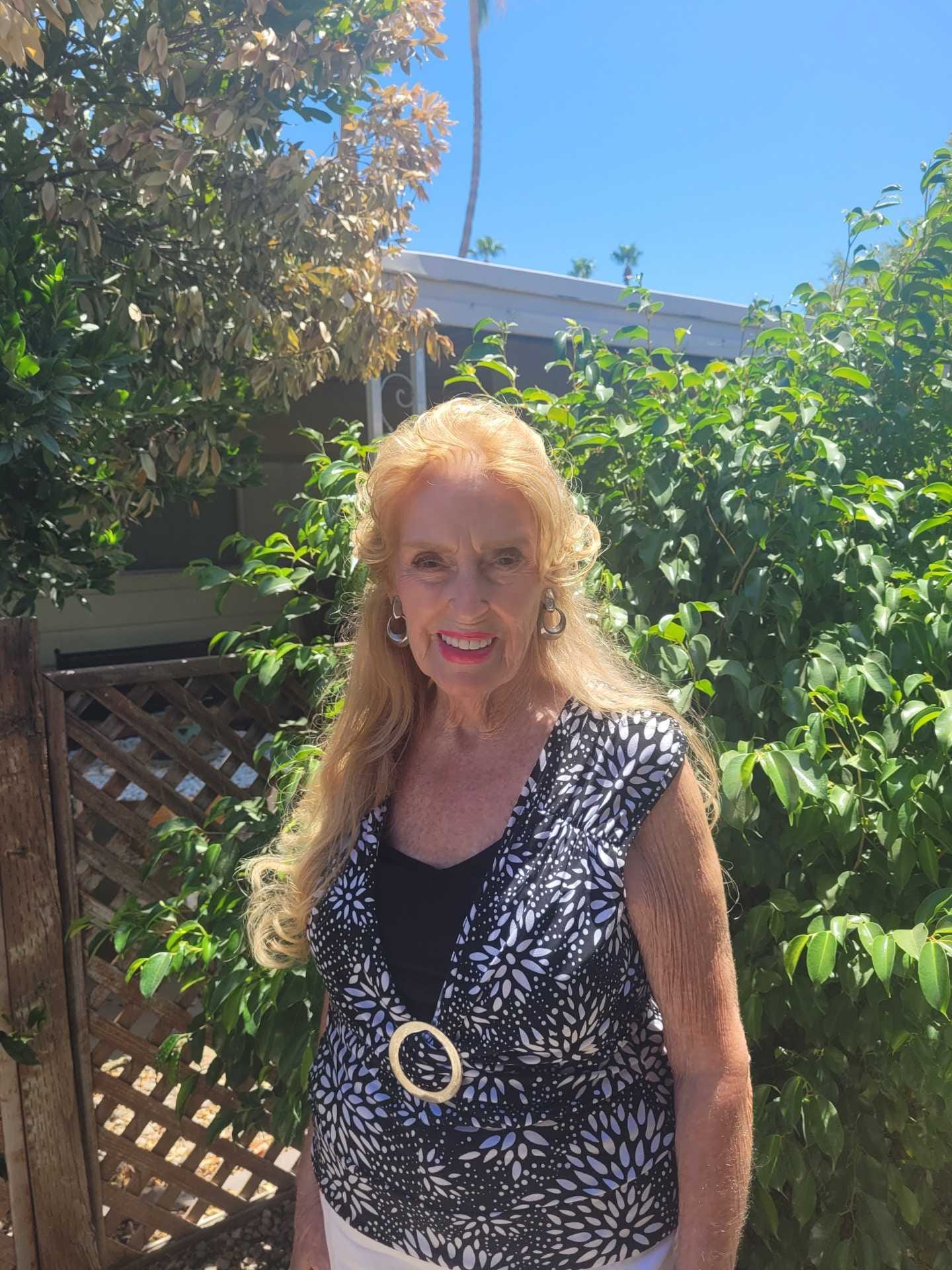
Phyllis Miller
“This is the first time that I’ve really been at a roadblock,” Miller said. “It’s just a bad time right now out here, and so I’m just trying to deal with it, just day after day.”
Christian Weller, a senior fellow at the Center for American Progress, said that entrepreneurs and self-employed workers do not earn more than their comparable peers who work for employers. Though they may have a bit more wealth, it’s less liquid, he said. Entrepreneurs tend to overvalue their business, he added, and finding a successor to take it over often doesn’t work out.
Weller added that self-employment often arises during times of economic struggle.
“It’s simply a way for older workers to not admit that they got laid off and can’t find another job,” Weller said. People encouraging older workers to start businesses are dealing with people “who are already in a fairly risky position without a lot of savings and need to work longer to take on more risk. You might as well take them to the casino and see whether they win the slots.”
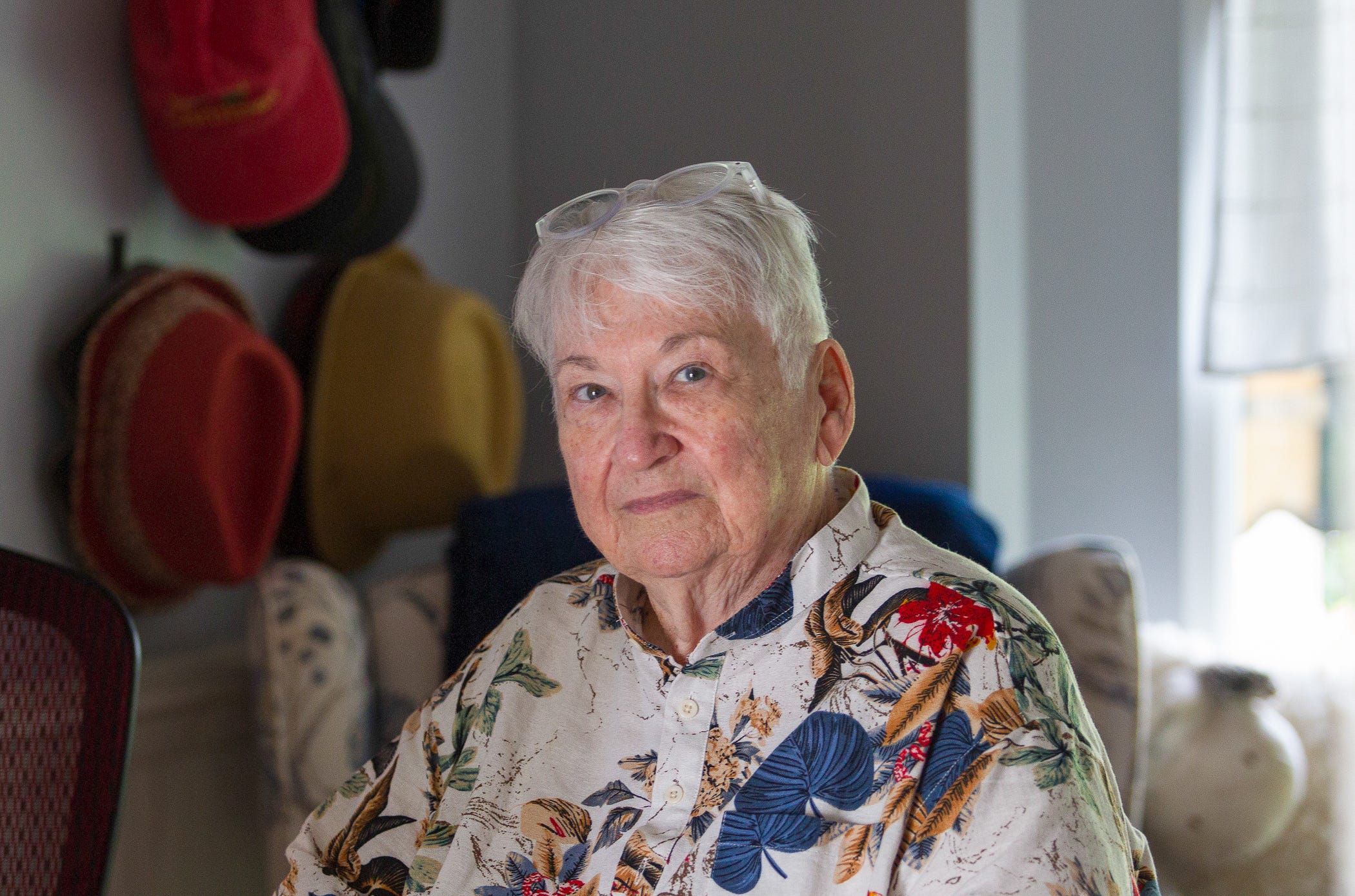
Nilo Jimenez for BI
Ginger Wright, an 81-year-old living in the suburbs of Orlando, rose the ranks to become a vice president of a call center with 600 direct employees. She had semi-retired from that when she helped start a B2B service provider firm and sold it for over half a million dollars in 2022. She retired from the company this summer after helping with the transition.
Wright said she could go a year without working but would have to change her lifestyle, as she’s spent about $15,000 in home upgrades this year and doesn’t have as much discretionary spending.
Hear Wright discuss her future plans:
“The fact is that yesterday, I was sitting on that money, and today, that money’s gone, and I don’t have that to fall back on,” Wright said. Now she’s looking “religiously” for new jobs.
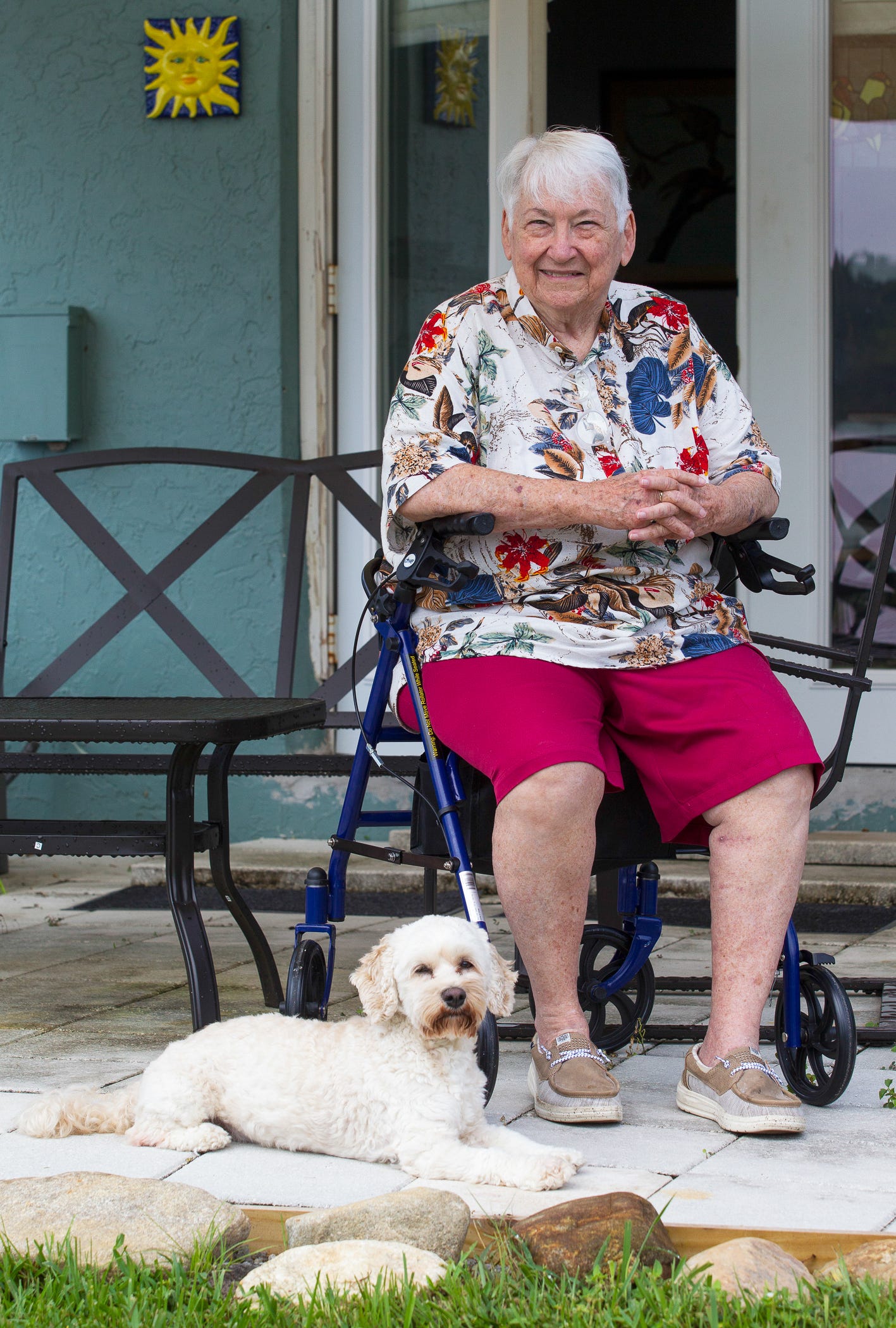
Nilo Jimenez for BI
She’s also thinking about launching consulting projects or installing equipment for companies hoping to upgrade their technology. But she worries about prohibitive startup costs.
“A door closed, and there’s a door or window open, and I just haven’t found where that is yet, ” she said.
Hope for a better life
For some older Americans, sacrificing quality of life and income to achieve prosperity is part of the journey.
“We’ve seen from the research that those who work for themselves later in life are less likely to have other employees,” said Halvorsen at WUSTL. “They’re starting businesses because it provides them with supplemental income and something they care about. They’re probably getting out to their communities, talking to customers. They’re more physically engaged.”
Physically, Dianne Michels is stocking shelves at Trader Joe’s. Mentally, she’s planning how to secure clients for her consulting and coaching business. As soon as she gets home, she’ll scribble down her ideas and get to work building her new venture.
Hear Michels discuss her business:
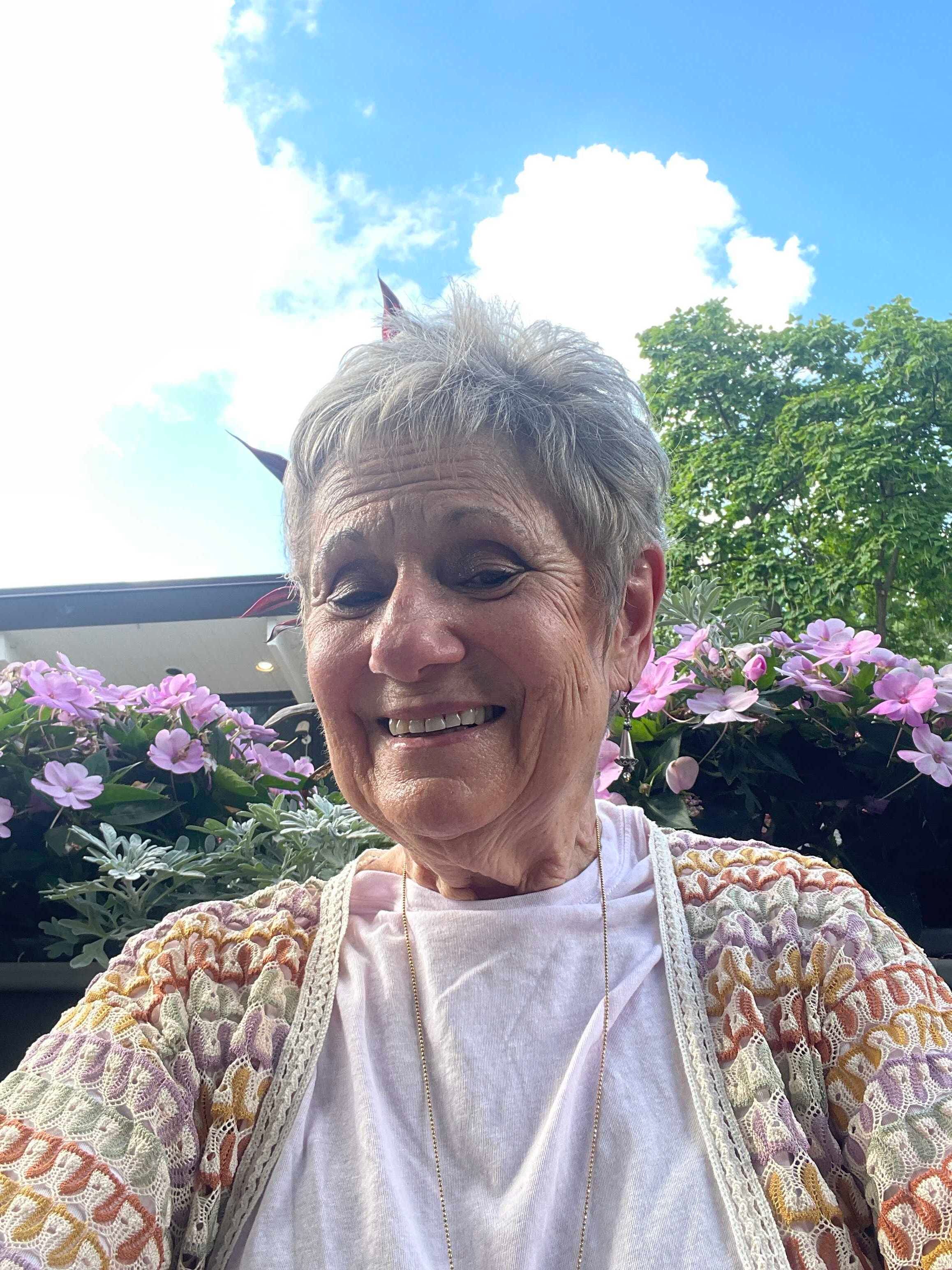
Dianne Michels
Michels, 81, hopes her income from Trader Joe’s will help her pay down the credit card debt she accrued to fund her business, Possibility Partners, which consults with companies to increase productivity and retention. She conducts food demos and runs the cash register. She hopes to someday be able to focus on her business full-time and wants to move closer to her daughter so she can have the flexibility to babysit.
“I refuse to buy into the age discrimination in our country that so segregates people by age, as there is much to be learned from one another when age is not a factor,” Michels said, adding that she hopes people will look past her age and embrace her message. “Part of me never wants anybody to know how old I am because I don’t want them to treat me like I’m an old person.”
Read the original article on Business Insider
The post Starting a business in your 80s isn’t easy — but it may be the only way to earn a living appeared first on Business Insider.




